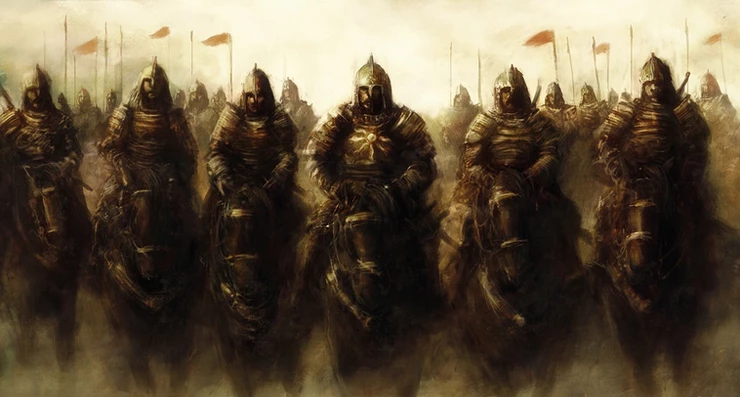Tonight marks the anniversary of the battle of Badr, hence, this Quranic insight relates to an incident that occurred on the battlefield. The phrase لَا غَالِبَ لَكُمْ only appears in two places in the Quran. One from Allah, and another quoted from the Devil.
Allah says to the believers. “إِن يَنصُرْكُمُ اللَّـهُ فَلَا غَالِبَ لَكُمْ“
“If Allah helps you, then absolutely nobody can overpower you” {Sura ‘Aali ‘Imraan:160}
Shaytaan is quoted promising the Quraysh of Makkah. “وَقَالَ لَا غَالِبَ لَكُمُ الْيَوْمَ مِنَ النَّاسِ وَإِنِّي جَارٌ لَّكُمْ” This was at the time of the battle of Badr. {Surah Al-Anfaal:48}
The same promise is being made. . . or is it?
Let’s have a closer look at it with context. Shaytaan makes this promise before the battle of Badr.
Now, before the battle, were the disbelievers feeling confident? Totally! They thought it was going to be a landslide victory, an easy win. The Muslims were greatly outnumbered, and the Quraysh were well equipped with weapons and armour, whilst the Muslims barely had any, with many of the companions in sandals. You’d think it would be a no contest.
However, the Muslims defeated the Quraysh. After the battle was over, how were the Quraysh feeling now? Completely crushed! Destroyed! Annihilated! Humiliated.
Now recall the speech of Shaytaan to the disbelievers, which was promised before the battle of Badr.
He came to the Quraysh and whispered to them promising them, “لَا غَالِبَ لَكُمُ الْيَوْمَ مِنَ النَّاسِ وَإِنِّي جَارٌ لَّكُمْ”
When Allah said لَا غَالِبَ لَكُمُ. The sentence stops there. the promise is absolute. There aren’t any conditions, no exceptions, nothing.
On the other hand, when Shaytaan says it, he adds three extra things; One. الْيَوْمَ – Two. مِنَ النَّاسِ – Three. وَإِنِّي جَارٌ لَّكُمْ –
Let’s break this down and have a look at this one by one.
One. الْيَوْمَ – “Today” – لَا غَالِبَ لَكُمُ الْيَوْمَ “Nobody will overpower you today” Shaytaan doesn’t know the future. He makes empty promises. This day, Badr. Things were looking pretty good. 1000 well equipped Quraysh warriors, against 300 odd refugee Muslims barely carrying weapons and armour. The odds look pretty good!
Two. مِنَ النَّاسِ – “From amongst the people” – لَا غَالِبَ لَكُمُ … مِنَ النَّاسِ Why does Shaytaan specify people? If you look at it man to man, 300 unequipped against 1000 strong. An easy win. Rather, what did Allah do in the battle of Badr? He sent an army of Angels! Shaytaan is specifically promising, if it’s a man to man battle, things are looking great for the Quraysh, but if the Angels show up. . . I’m outta here!
Three. وَإِنِّي جَارٌ لَّكُمْ – “And no doubt, I am a neighbour to you” – لَا غَالِبَ لَكُمُ . . . وَإِنِّي جَارٌ لَّكُمْ Basically Shaytaan is saying, “I got your back!, I’m by your side”
Now this third point is what blew me away especially. How it is worded. The language of it, pay attention to this. Typically, I would say, ‘I am your neighbour’, not ‘I am a neighbour to you’. See how the second phrase is quite strange? ‘I am a neighbour to you.’ Both these phrases make sense yes, but the latter is not the normal way of speaking.
Now the question is why? By asking why and delving into it, you will see just how Allah teaches us a profound lesson regarding Shaytaan.
In the Arabic, the normal way of saying ‘I am a neighbour to you’ would have been, إِنِّي جَارُكُمْ “I am your neighbour.” This is what you call an Idaafah construction in Arabic.
For those who aren’t familiar with Arabic, An Idaafah is a phrase consisting of at least a couple of words coming together, which are grammatically inseparable. A couple of words, which must and need to be together, and nothing can come in-between.
Yet, Allah does not make this phrase, جَارُكُمْ , instead, Shaytaan is quoted to have said جَارٌ لَكُمْ.
These words are not grammatically connected to each other by way of Arabic language structure.
Why a peculiar abnormal use of language?
Shaytaan is cunning, he chooses carefully how he speaks and what he promises. In this particular case, his offer of support that comes with a subtle unnoticed disclaimer. He says it in a way that, even in terms of language, in terms of grammar, Shaytaan the ‘Neighbour’ is not connected to the Quraysh, ‘to you’. جَارٌ لَكُمْ
The words are separable, so therefore, so is Shaytaan. He is not loyal to Quraysh, neither is he loyal to anyone else. Just his own agenda to mislead.
The Aayah continues to say, “فَلَمَّا تَرَاءَتِ الْفِئَتَانِ نَكَصَ عَلَىٰ عَقِبَيْهِ وَقَالَ إِنِّي بَرِيءٌ مِّنكُمْ إِنِّي أَرَىٰ مَا لَا تَرَوْنَ إِنِّي أَخَافُ اللَّـهَ”
‘When the two armies sighted each other, he (Shaytaan) turned on his heels (and ran!) and said, ‘I am not associated with you’
(Basically saying, ‘I got nothing to do with y’all, I don’t know you!)
I see what you all don’t see (an army of fierce Angels) And I fear Allah!’
So, Shaytaan runs, and he’s like, good job I didn’t say, جَارُكُمْ
I find it quite interesting that, Shaytaan, with who and what he is, when he speaks, he doesn’t lie, or at least he didn’t in that instant, yet he is very particular in the words and language he uses.
Very very cunning, just like his whispers to us, how he will leave room for his own disclaimers and we won’t even realise.
Like the t&c’s we tick which insurance companies trick you with which go unnoticed, until it comes to the crunch, and then it’s too late. You’re trapped.
May Allah protect us from Shaytaan, (and from Insurance companies types who try to trick us! 😬)
Aameen!

